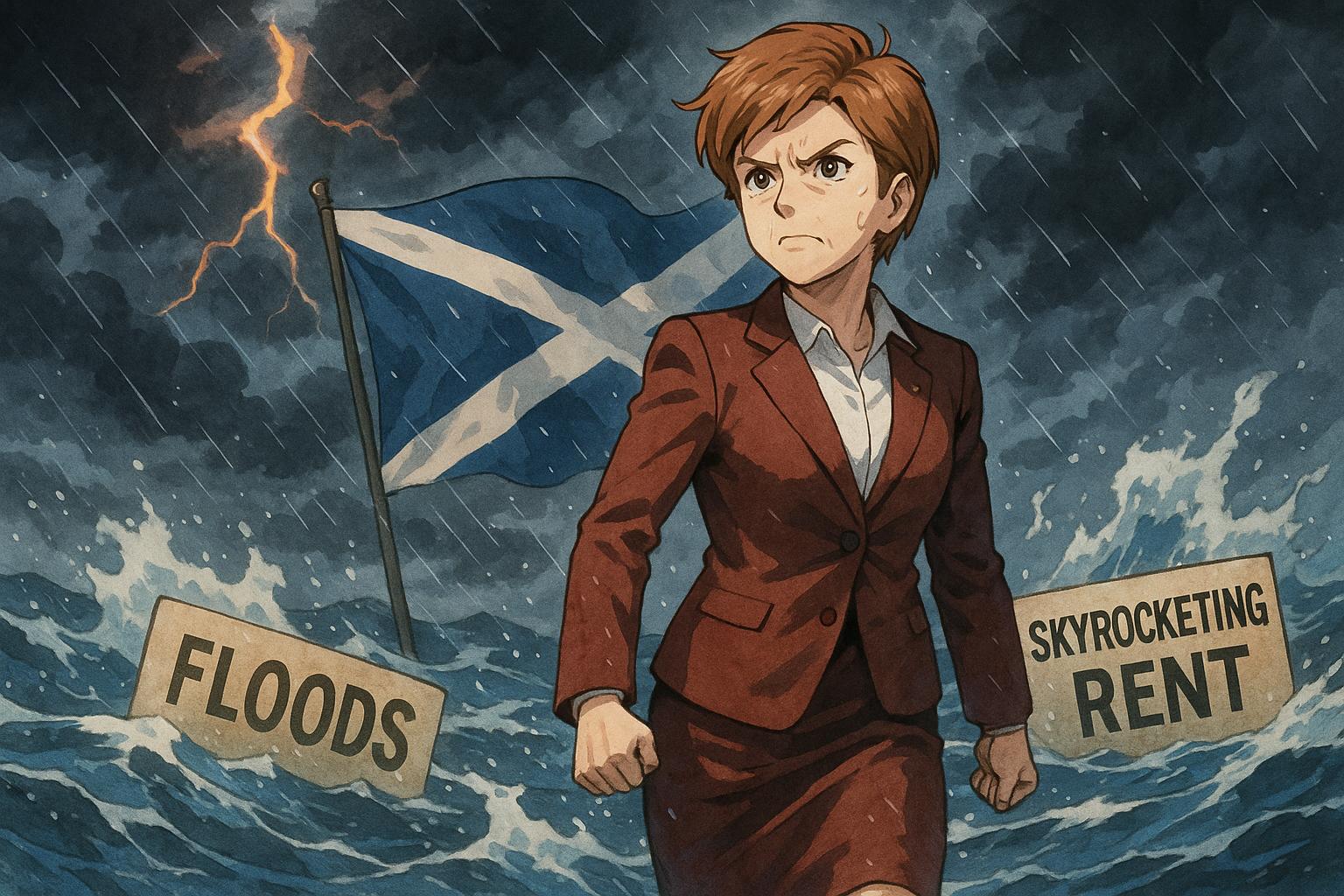The Scottish Government is stumbling through a torrent of criticism, underscored by an incessant chorus of “crisis” reverberating through Holyrood. Recently, opposition leaders, including Anas Sarwar and Russell Findlay, have vehemently exposed the SNP's incompetence in handling issues such as housing shortages and legal aid failures.
Scotland is now facing its highest homelessness figures in over a decade, with more than 33,600 households classified as homeless or on the brink of homelessness by March 2024, marking a staggering 3% rise from the previous year. This alarming statistic highlights the undeniable strife of a housing crisis spiraling out of control. The turmoil is not contained within Scottish borders; it echoes a disconcerting national trend in England, where temporary homelessness has soared by 12%, impacting over 117,000 households. Detractors point to government budget cuts, claiming they are crippling efforts to provide affordable housing, revealing an urgent failure in leadership.
The government's latest stance on rent control further complicates matters, with recent caps on rent increases set at inflation plus 1%. While this move is purportedly designed to protect tenants, it raises grave concerns among investors who warn it could deter crucial investments necessary for new housing developments. This paradox is glaringly evident as rental rates in Scotland continue to rise sharply, even amidst stringent regulations, exposing the futility of their current approach to tenant protection.
In the middle of this crisis, Finance Secretary John Swinney has opted for the tired excuse of escalating construction costs linked to the Ukraine conflict, asserting that these increases are behind the ballooning expenses of essential projects, particularly a new prison for HMP Barlinnie. Originally budgeted at £100 million, estimates have shockingly surged past £1 billion. Such an outrageous escalation calls into question the government's financial stewardship and capability.
The First Minister’s rebuttals in the face of mounting criticism have frequently ignited scorn and ridicule from the opposition benches, particularly when he invokes geopolitical circumstances as a shield against accountability. Far too many observers have deemed his attempts to pin rising utility and construction costs on Vladimir Putin as a desperate distraction rather than a sound rationale.
Beyond these pressing challenges, the SNP's overarching political strategy has been met with skepticism. Swinney's pivot to the political centre, abandoning progressive initiatives, seems more an act of survival than a genuine commitment to improve public service. While recent polls suggest this pragmatic tactic may stave off immediate threats, it utterly fails to address everyday concerns for Scots grappling with surging living costs and insufficient services.
As Storm Babet wreaks havoc across Scotland and northern Europe, leading to severe flooding and widespread disruption, including ferry cancellations, the SNP’s past promises will face rigorous scrutiny. The chaos in ferry services, made worse by environmental challenges, adds yet another dimension to the ongoing crises under this administration's watch.
In this increasingly precarious environment, characterized by entrenched and escalating issues, the critical question looms: will the SNP manage to reclaim its authority and meaningfully confront the multitude of crises besieging Scotland, or will these failures define their legacy? Voter disillusionment grows as their governance falters, leaving ample space for alternative voices advocating for real solutions.
Source: Noah Wire Services
